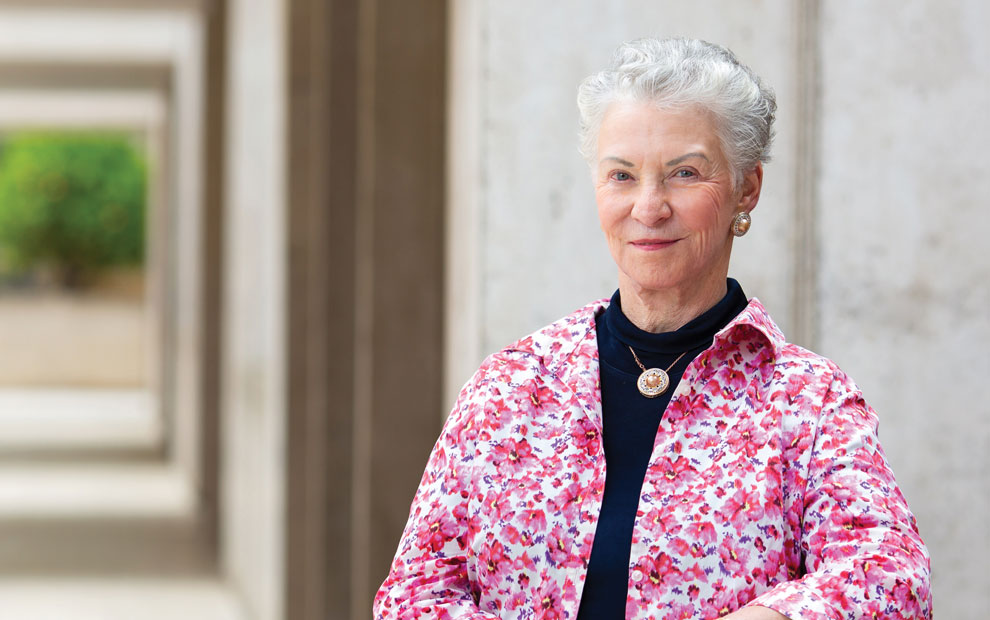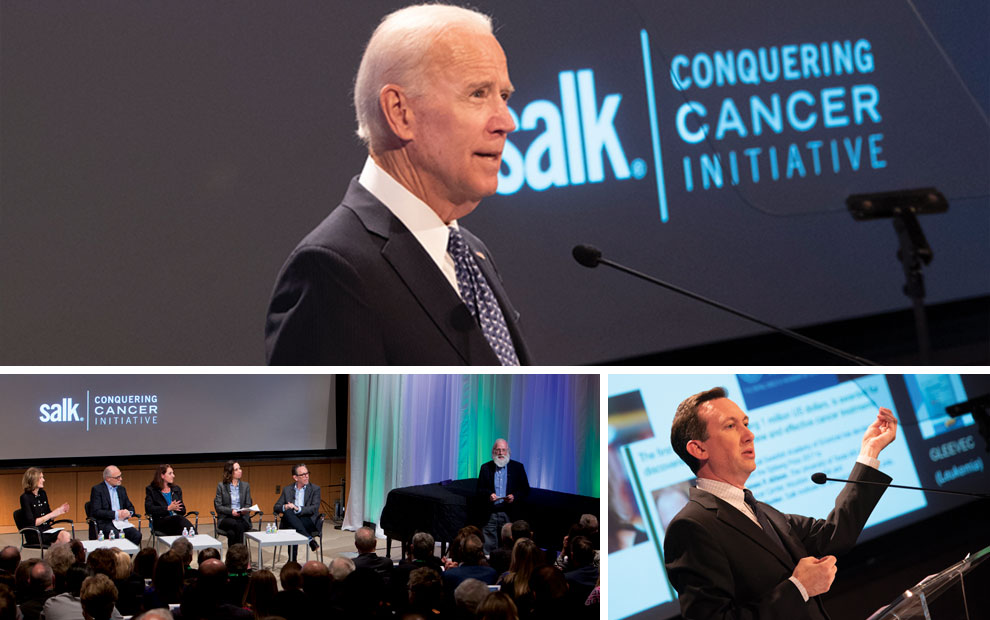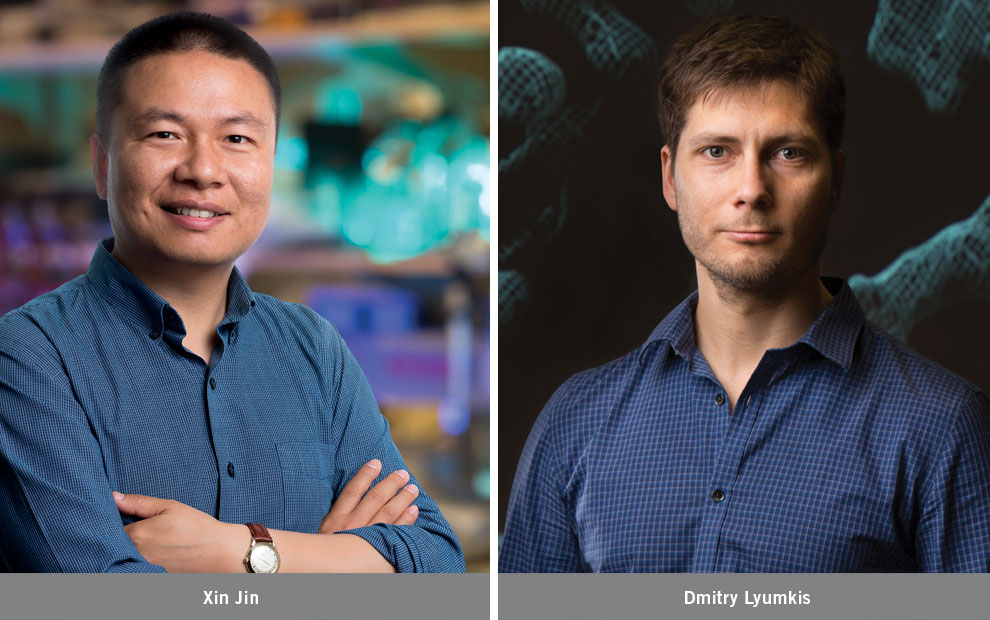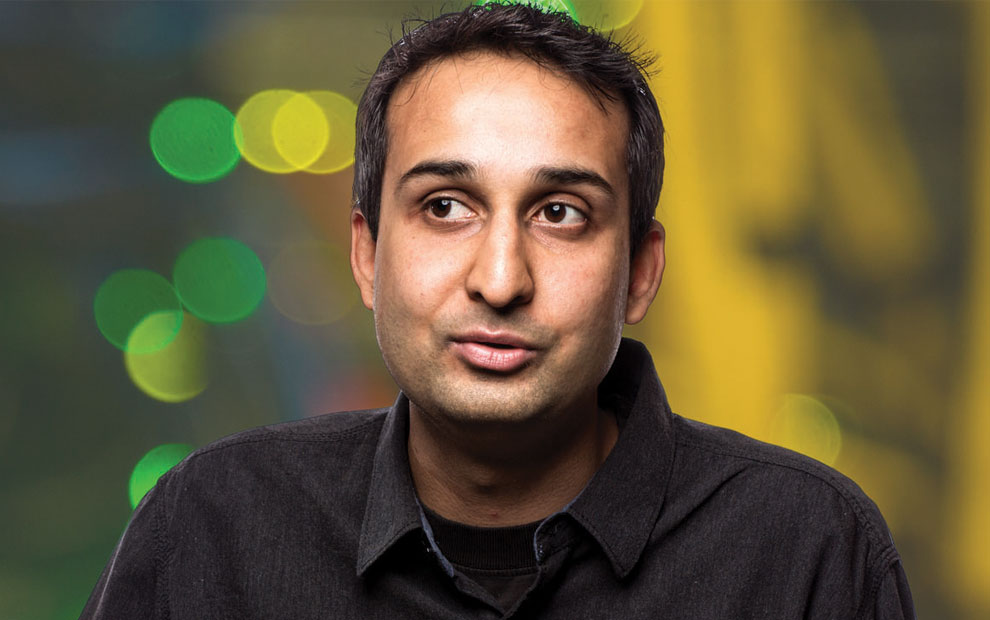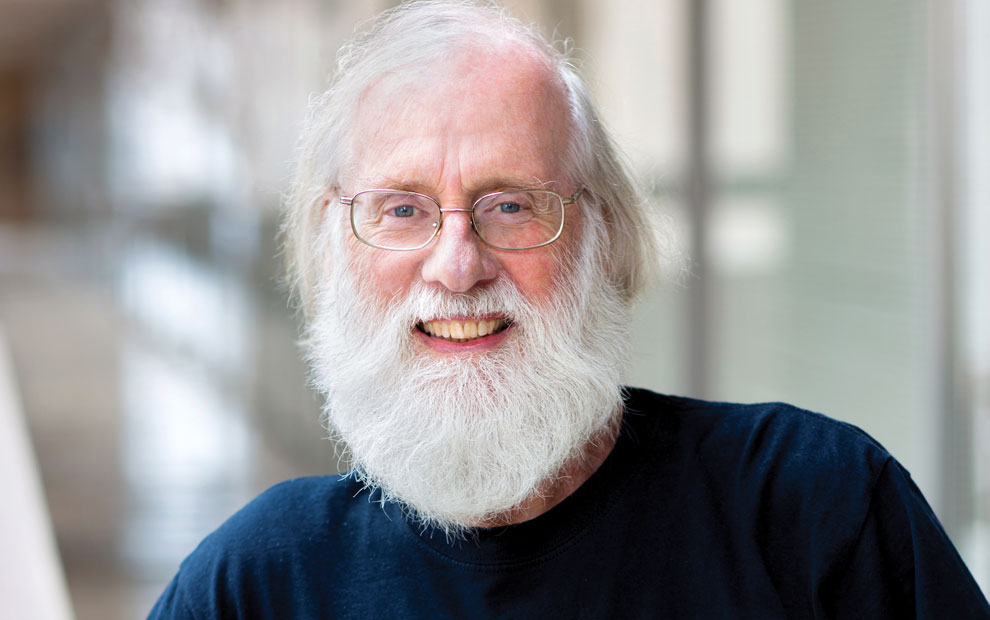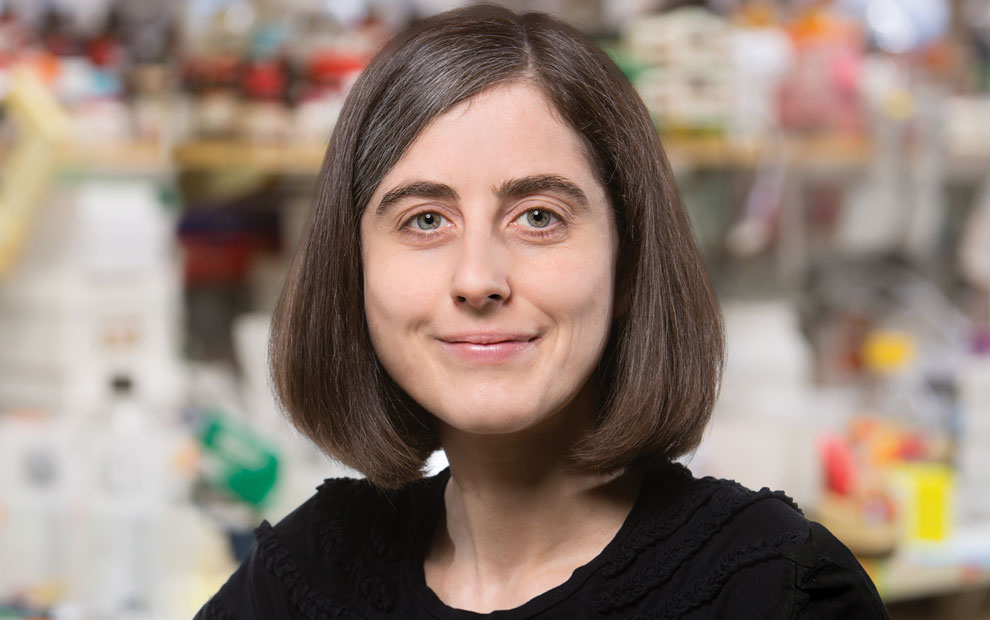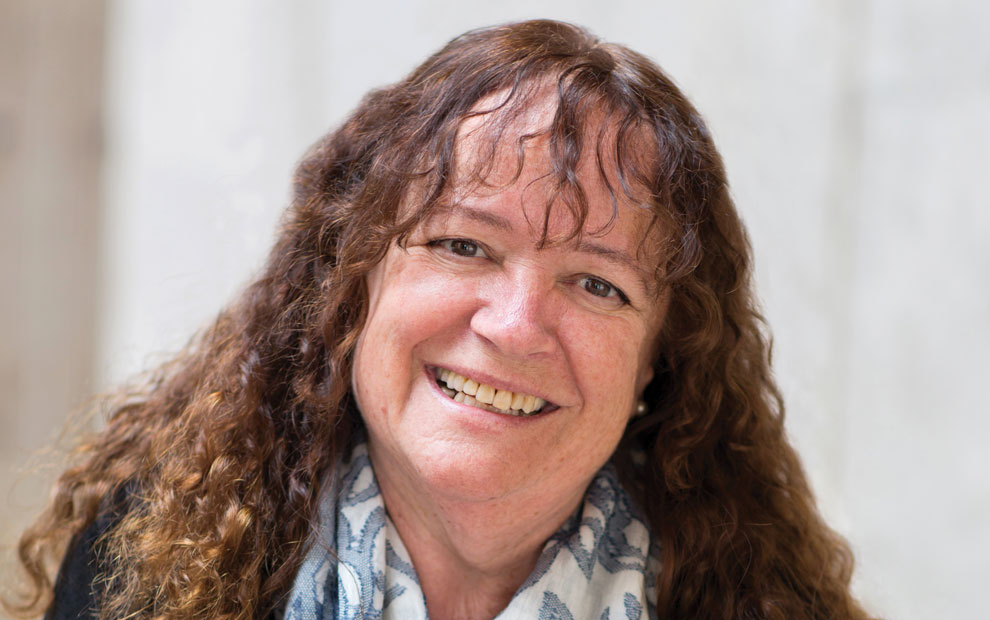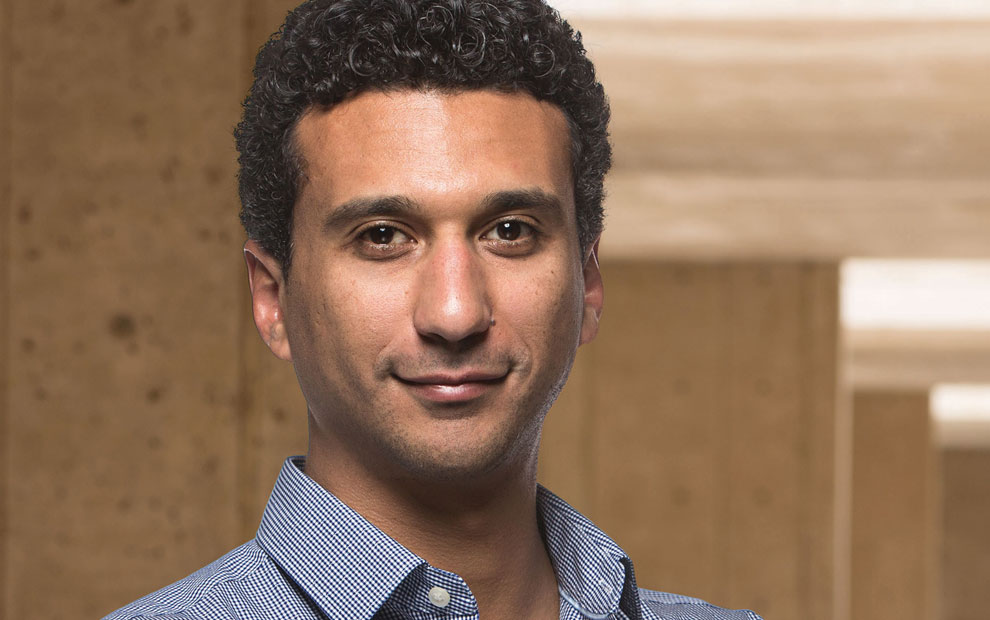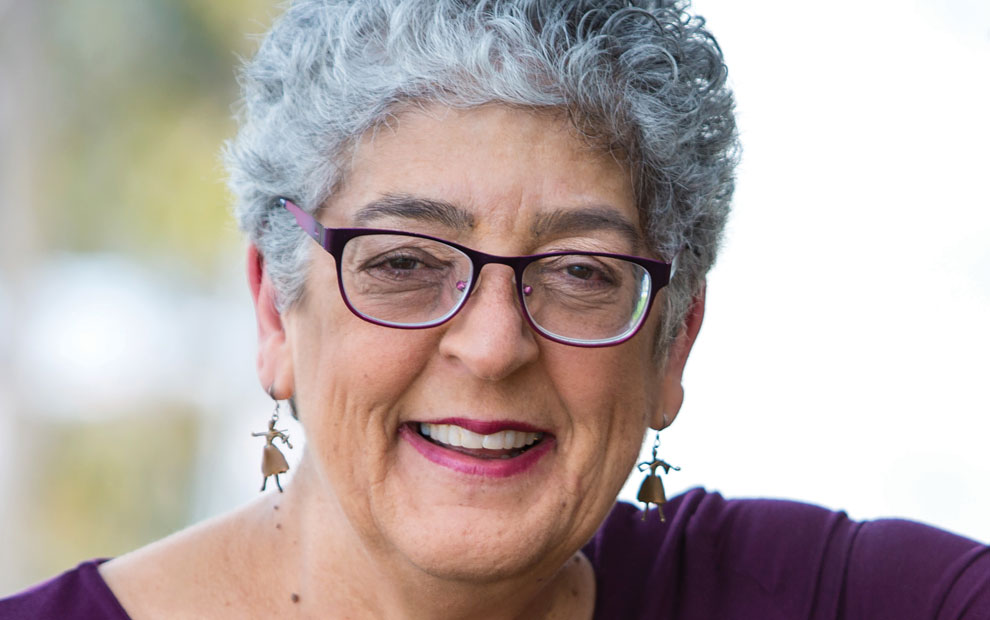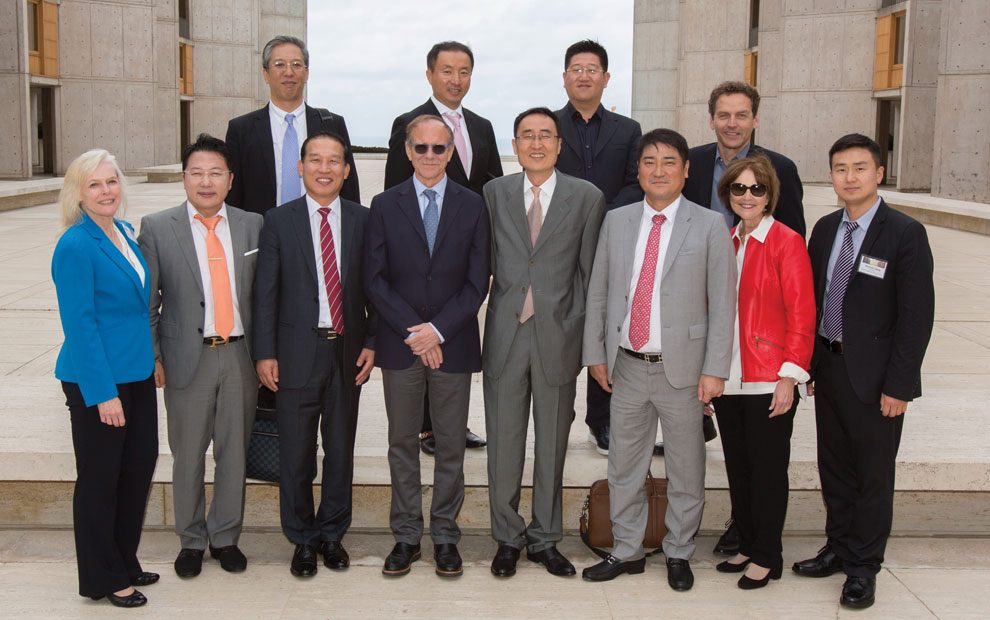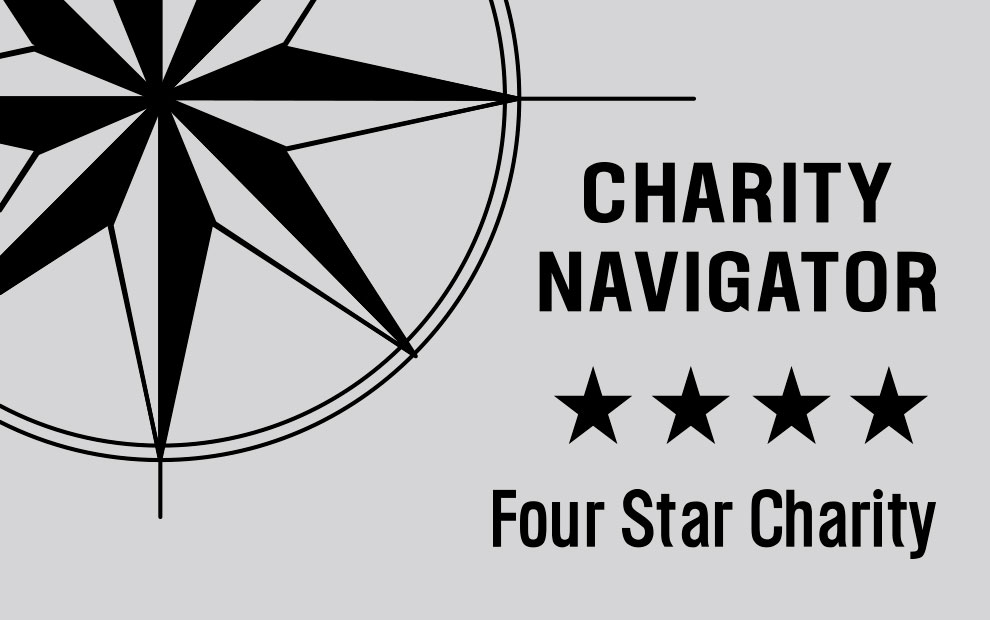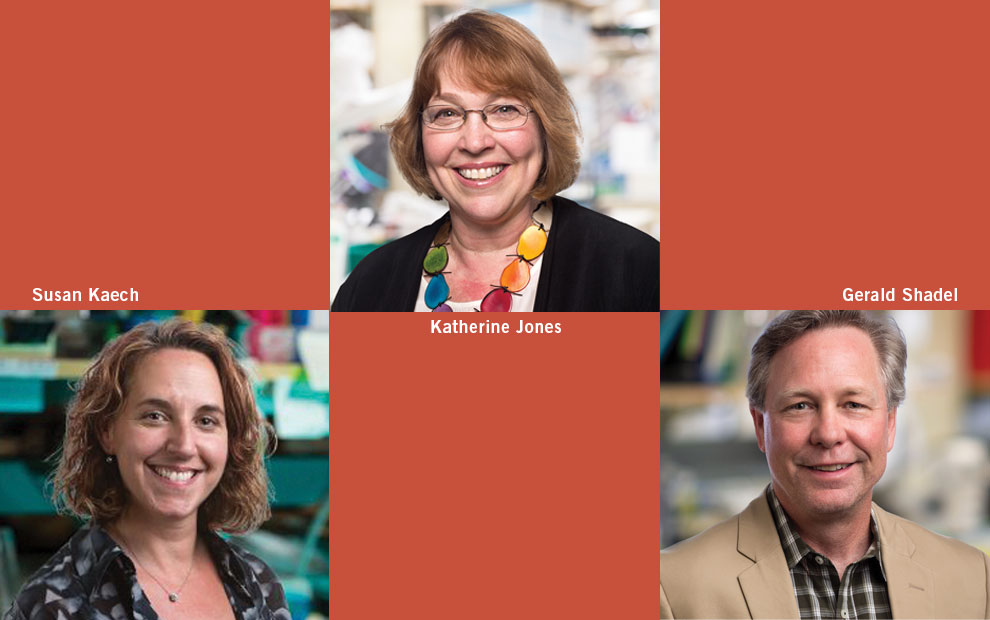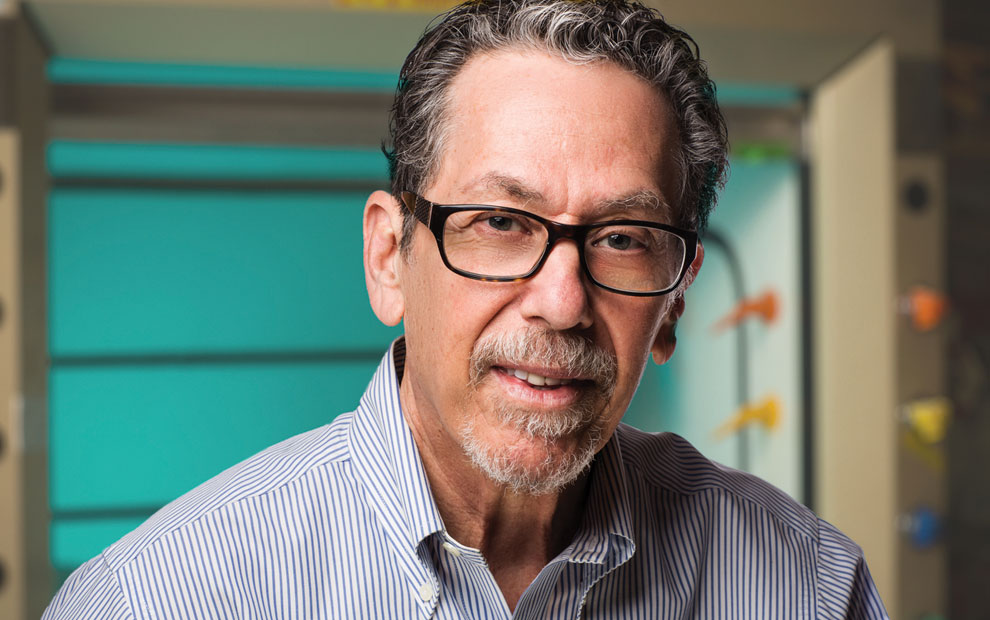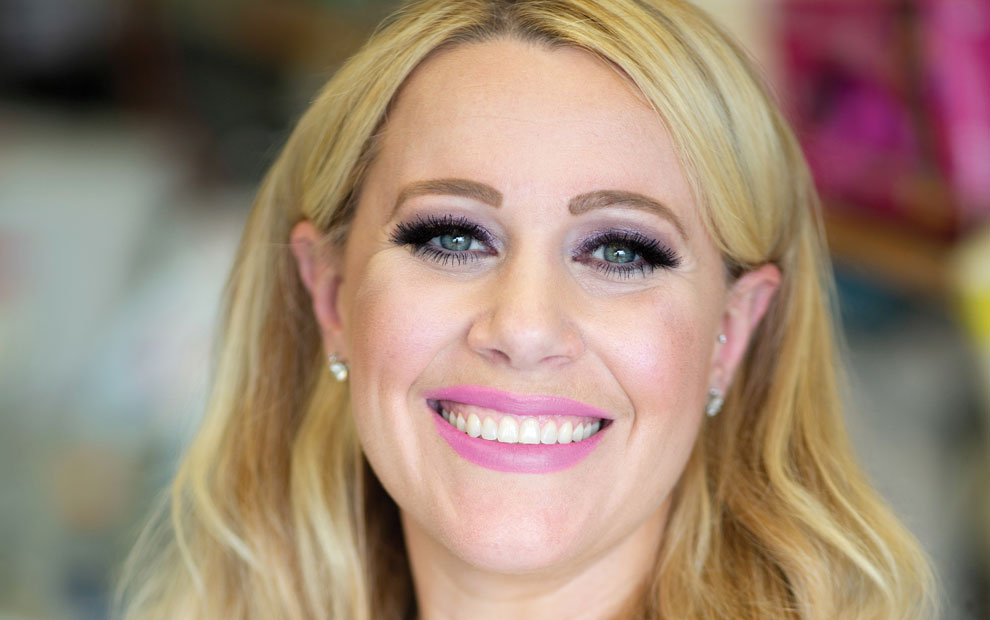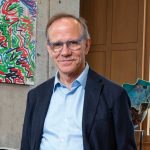Professor Emerita Catherine Rivier was honored with the inaugural Trailblazer Award from Salk Women & Science. The Trailblazer Award recognizes outstanding achievements made by women in a STEAM (Science, Technology, Engineering, Art or Mathematics) field. Recipients have pioneered changes within the STEAM fields as innovators, groundbreakers, collaborators and mentors. They have dedicated their lives to making significant advances in both their professional and personal realms. Trailblazers forge their own paths to achieve their vision.
Professor Rivier originally joined the Salk Institute in 1970, alongside Baylor University colleagues Roger Guillemin (who was her mentor and would go on to win the 1977 Nobel Prize in Physiology or Medicine) and Wylie Vale (a former Salk Institute professor and world-renowned expert on brain hormones who passed away in 2012), as well as her husband, Jean, who is an equally esteemed researcher and someone whom she credits in her success. During her tenure at Salk, Rivier studied the mechanisms through which the brain is alerted to stressors, such as psychological threats, infections or drugs, as well as the hormones used by the brain to respond to these challenges. She identified a large number of hormonal functions and new endocrine pathways throughout the body; among researchers in the field, her work is considered exceptional. Published in hundreds of papers, she earned numerous consecutive “Highly Cited Researcher” awards, her articles paving the way for many future discoveries.
Mentorship was a particularly important theme for Rivier throughout her career. “I think mentorship is important for everyone,” says Rivier, “but it’s particularly critical for women because we face many gender-specific problems. For example, younger women often asked me how I managed to bring to this world and raise two children while pursuing my career, and how I balanced work with family life and responsibilities. I always considered sharing my experience in dealing with these issues to be an important and enjoyable part of my job.” According to Betty Vale, “Catherine is an original Salk trailblazer for her contributions as a visionary scientist, early role model and mentor, and partner in founding Symphony at Salk.”

















































